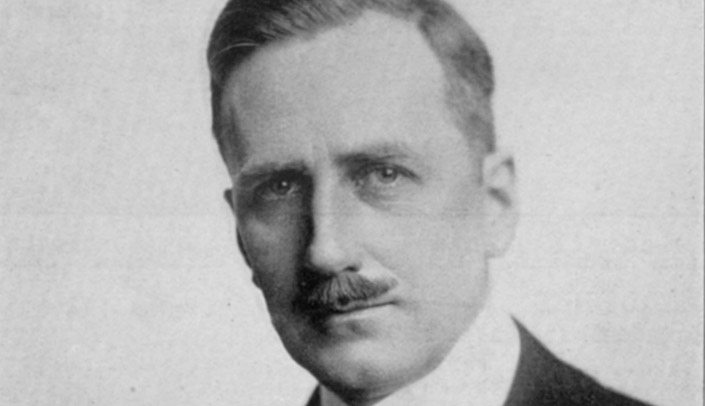Irving Cutter, M.D., led the University of Nebraska College of Medicine through an era of transition and growth in the 1910s-1920s. His skill in administration, foresight in academic and clinical medicine, and forceful personality helped to shape the institution that would become the modern-day UNMC.
Dr. Cutter was born in New Hampshire in 1875 and moved to Humboldt, Neb., as a child. He graduated with a B.S. from the University of Nebraska in 1898. In 1906, he entered the College of Medicine, graduating in 1910.
In 1913, he joined the faculty of the College of Medicine as director of laboratories during a time of significant change for the college. When Omaha Medical College had affiliated with the University of Nebraska in 1902, the curriculum split between two years of basic sciences in Lincoln and two years of clinical work in Omaha. The Flexner Report (1909) advised the university to unite the programs. The two cities fought hard to secure the home of the University of Nebraska College of Medicine, with Omaha ultimately prevailing.
Only five years after receiving his M.D., Dr. Cutter became the dean of the unified College of Medicine in 1915. Dr. Cutter was responsible for finalizing the transfer of basic sciences faculty to Omaha and filling the new North Laboratory (Poynter Hall).
As dean, Dr. Cutter looked to the future of academic and clinical medicine. He was responsible for requesting and receiving the funds from the state legislature to build University Hospital (1917), South Laboratory (now Bennett Hall) (1919), and School of Nursing building (1923). A local paper declared that Dr. Cutter was responsible for the College of Medicine growing from a “small, little known institution into a large, modern college of the very highest standing; the hospital, in connection with the school, has become a model studied by planners and builders . . . from all over the country.”
Dr. Cutter also led the college through World War I. Eighty faculty members and students served during the war. The Board of Regents granted Dr. Cutter a leave of absence to serve as a captain in the medical corps. Foreshadowing his role in the war, as an undergraduate student at the University of Nebraska-Lincoln, Dr. Cutter had served in the Cadet Corps under John J. “Black Jack” Pershing.
Dr. Cutter left Nebraska in 1925 to be the dean of the College of Medicine at Northwestern University in Chicago. He died in 1945.
To learn more about the history of the College of Medicine in the early 20th-century, visit Digital Commons to read “The First Hundred Years” and view photographs of buildings.
